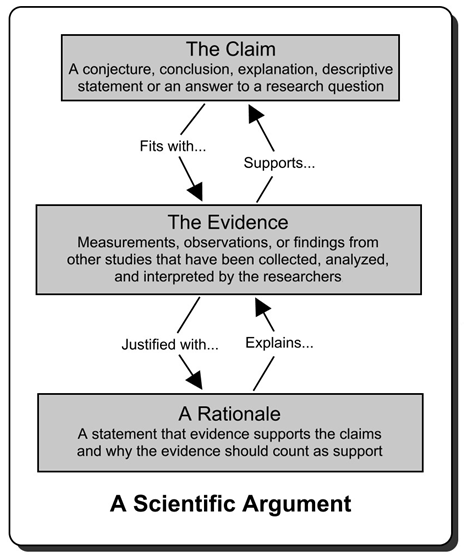An Introduction to Scientific Argumentation
Over the course of human history, people have developed many interconnected and validated ideas about the natural world. These ideas have enabled successive generations to achieve an increasingly comprehensive and reliable understanding of how the world works. The means used to develop these ideas are based on particular ways of investigating phenomena and supporting or justifying explanations, conclusions, and other claims. The ways scientists investigate and support ideas represent a fundamental aspect of the nature of science and reflect how science tends to differ from other modes of knowing. However, it is important to remember that there is simply no fixed set of steps that scientists follow and there is no one path that leads them unerringly to scientific knowledge. There are, however, certain features of science that give it a distinctive character as a mode of inquiry and a way of knowing. So how do scientists go about the process of producing defensible knowledge? Simply put, any idea put forward by a scientist or a group of scientists must be reviewed and critiqued by other scientists before it can become part of the disciplinary framework scientists use to understand how the world works. Scientists, therefore, rely on scientific arguments to persuade other scientists of the merits of their work. Figure 1 (see below) highlights the components of a scientific argument. In this class you will learn how to generate these types of arguments and how to critique scientific arguments using the criteria used by the scientific community. Although scientists differ greatly from one another in what phenomena they investigate and in how they go about their work (e.g., whether they rely on qualitative or quantitative methods), the exchange of techniques, information, and concepts goes on all the time among scientists, and there are common understandings among them about what constitutes defensible scientific knowledge and what types of practices should or can be used to generate this type of knowledge. This is how quality control is maintained in science. It is important for you to learn how to engage in scientific argumentation as a way to propose, justify, evaluate, and revise knowledge.
Figure 1: The components of a scientific argument

Figure 2: The quality of the argument is evaluated using this criteria
